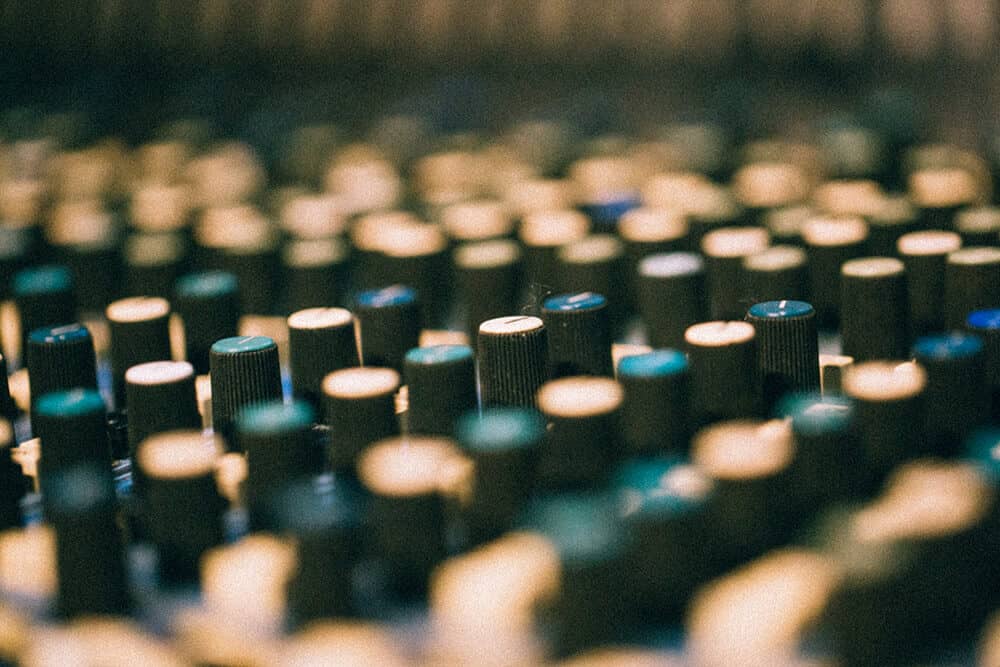JOIN US SEPTEMBER 2024 - APPLY TODAY OR BOOK YOUR PLACE ON ONE OF OUR OPEN DAYS IN BRIGHTON OR SHEFFIELD. UCAS CLEARING IS NOW OPEN.
JOIN US SEPTEMBER 2024 - APPLY TODAY OR BOOK YOUR PLACE ON ONE OF OUR OPEN DAYS IN BRIGHTON OR SHEFFIELD. UCAS CLEARING IS NOW OPEN.

After spending weeks and months writing your band’s new record, make sure you then spend those extra couple days completing the small tasks that will save you time in the studio. These are 6 things you must do before stepping into the studio.
This might seem like an obvious task to have completed before entering the studio, but it’s the smallest details that can make or break your new hit record. Due to adrenaline, when you’re rehearsing or performing your tune, you are always going to play it that touch faster. So when going into the studio, make sure you have rehearsed the tracks to click and have decided the tempo of your songs. The tempo of the track can dictate the feel of the song, so start there when preparing for the studio.
To save your band time and money, pre-recording your ghost tracks are essential. Emailing over an MP3 only takes a minute, whereas recording your ghost tracks when you turn up to the studio can take up to a couple of hours. The time spent recording ghost tracks in the studio is essentially wasting your band's money. Make sure your ghost tracks have all the details necessary. For your drummer to get a good vibe, and start the recording process, make sure they have everything they want in their ears.
Recording demos is a very efficient way to gauge how your song is feeling and sounding. To hear your music back without playing it, gives you the opportunity to focus your ears on the track. It also allows you to look at the song as a songwriter and not as a musician. This allows you to chop and change the song accordingly.
This can be adding one bar to a verse, doubling up a chorus, taking away instrumentation and allowing more room for vocals. Recording demos is also important for your producer. Sending the demos in advance allows them to understand your music. This allows them to analyse the provided reference tracks and start preparing for the session.
Going into the studio with a producer that has the same vision as you is integral to the creative process. Having a producer who shows a keen interest in your music and all the nuances is a good thing. Your initial reaction when someone wants to change (improve) your music is to defend it, which you should! You should have a passion and belief in what you are creating, but taking suggestions from others is also very important. Choosing the right producer can definitely change the entire feel of your record. If you are a pop band, you need to work with someone that has a good knowledge of pop production and pop songs. If you are a metal band, you need to work with someone that understands the metal scene and metal production.
Before going into the studio, make sure you have restrung your guitars, put fresh skins on your drum kit and have more than enough sticks and picks. If you have dead heads, your drum kit is going to sound flat and if you have old dirty strings, your record is going to sound dull. Having fresh heads, new strings and polished cymbals gives the producer more to work with.
Make sure you have done this before turning up to the studio so the producer can get straight onto micing up the kit. Once you’ve freshened up your sound, it’s key that you tune your heads and you have flexed your strings. Your guitar is about to be played heavier than usual and for a long period of time, so they need to be played in.
We’ve discussed how prepared you need to be to record, but one thing that is equally important is having room to breathe and embellish parts on the day. You don’t need to have every single drum fill decided in advance, the same way you don’t need to have every note of your solo finalised. Part of being in the studio is trying out different ideas. Maybe the new drum fill needs to follow a certain bass line or there are some underline melody accents that need stabs. Having this freedom is as equally important as being fully prepared. That being said, you must still know the large majority of your parts going in.
Here is a great example of a prepared studio musician.
If you're interested in learning more and are serious about progressing in your career as a musician, please join us at WaterBear HQ for an Open Day or Order a Prospectus.

- ‘Water bear’ is the common name for a Tardigrade.
- Tardigrades are micro creatures, found everywhere on earth.
- They are the most resilient creatures known.
- They can survive and adapt to their surroundings, even in outer space.
- Their resilience and ability to adapt and survive inspires us in everything we do. We love them.


WaterBear Education Ltd, Hanover House,
118 Queens Road, Brighton BN1 3XG, UK Map
Email: [email protected]
Tel: +44 (0) 1273 726230
WaterBear Sheffield, Unit 4, Gatecrasher,
49 Eyre Lane, Sheffield S1 4RB, UK
Email: [email protected]
Tel: +44 (0) 1143 992720

WaterBear Education Ltd, Hanover House,
118 Queens Road, Brighton BN1 3XG, UK Map
Email: [email protected]
Tel: +44 (0) 1273 726230
WaterBear Sheffield, Unit 4, Gatecrasher,
49 Eyre Lane, Sheffield S1 4RB, UK
Email: [email protected]
Tel: +44 (0) 1143 992720
- ‘Water bear’ is the common name for a Tardigrade.
- Tardigrades are micro creatures, found everywhere on earth.
- They are the most resilient creatures known.
- They can survive and adapt to their surroundings, even in outer space.
- Their resilience and ability to adapt and survive inspires us in everything we do. We love them.
